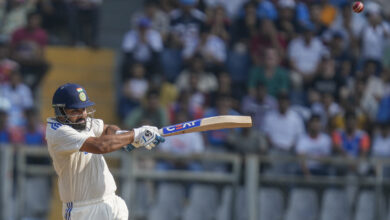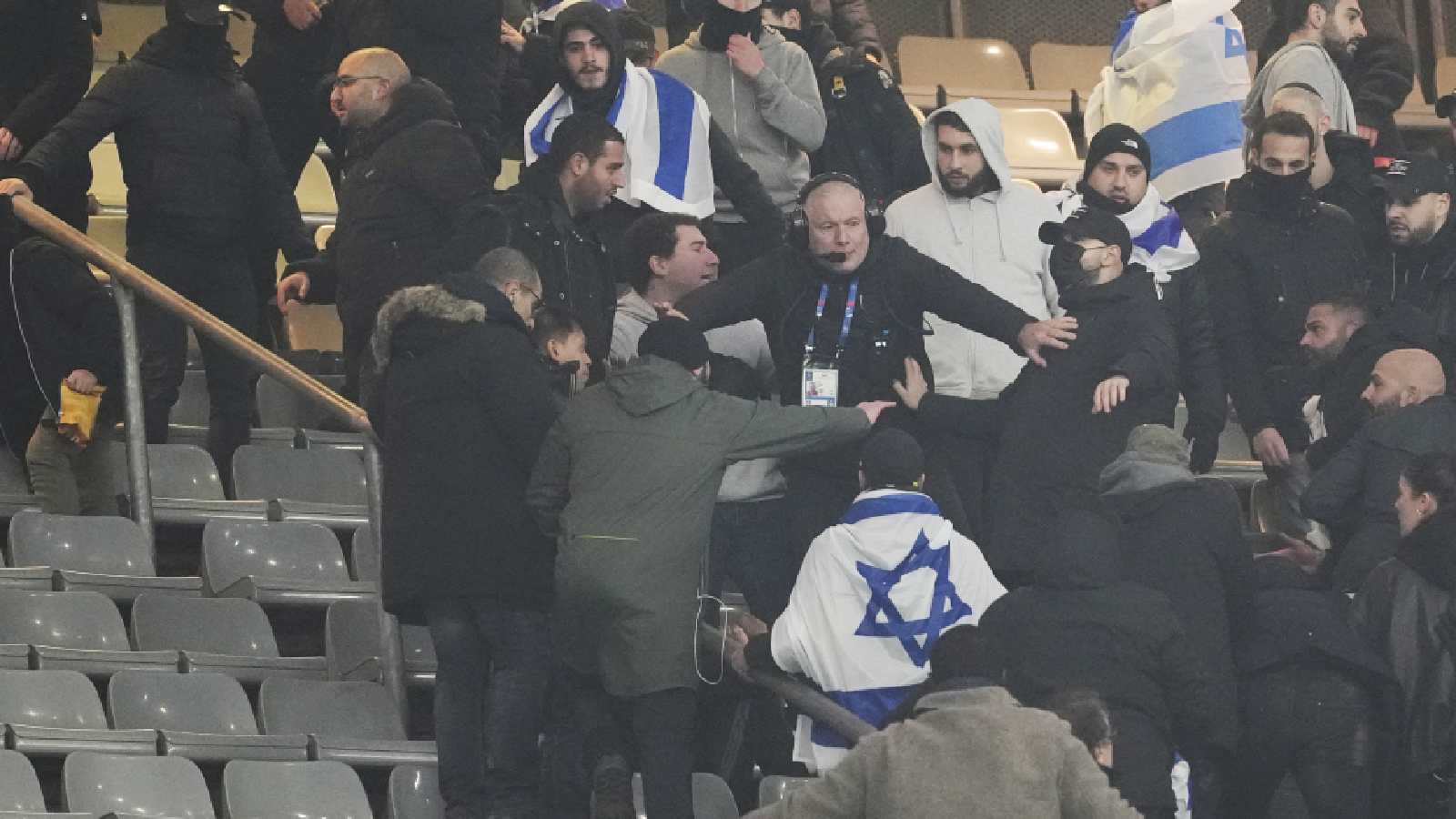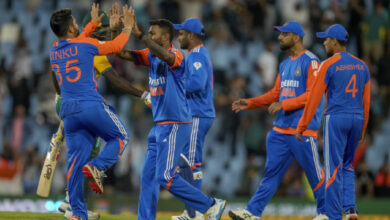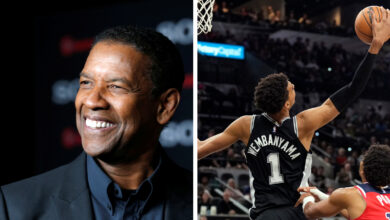Henrik Carlsen interview: Magnus is very good at playing the opponent rather than playing the position | Chess News

Henrik Carlsen jokes that he’s in Stavanger to drive his son Magnus Carlsen around among other things. Of course, the father of one of the greatest chess players in the world is just being modest. But then, as if to emphasise his point, he wraps up the interview with The Indian Express because he has to go pick up his son after a round of golf.“I have different roles (in Magnus’ career). I drive him around here, I also pick up his trainer (Peter Heine Nielsen) after games. I talk to people (on his behalf) such as during media interactions,” says Henrik, who introduced Magnus to the sport as a child.
For the first four days of the Norway Chess event, as fortunes on the 64 squares have oscillated, family members of some players have been a constant presence in the playing hall. Carlsen has a three-member entourage — which includes Henrik, his trainer Heine Nielsen and girlfriend Ella — that accompanies him to the main building that is hosting the event. But never once does the trio ever venture close to the playing hall, preferring to stay in a back room in the building and only emerging outside when the result of Magnus’ game is almost ascertained.
“I have different roles (in Magnus’ career). I drive him around here, I also pick up his trainer (Peter Heine Nielsen) after games. I talk to people (on his behalf) such as during media interactions,” says Henrik, who introduced Magnus to the sport as a child. (Photo Amit Kamath)
“I never go into the playing hall. When he was younger, I used to go in and watch him play for a minute or two and then leave. But now he’s a big boy (smiles). I would never go into the playing hall during a game even if I’m allowed to. People could think I have information that I could convey to him. So I haven’t entered the hall during games since he was a small boy. That’s a no go,” Henrik tells The Indian Express.
Over the years, as Magnus has gone from being teenage prodigy to world champion to being an all-time great, Henrik’s own sense of when to steer clear and when to say something after a game has become more acute.
“Sometimes he wants to talk about the game. Like yesterday in particular, when he enjoyed winning (against Fabiano Caruana) because he had lost the previous day to Pragg,” he says.
“We have a lot of experience in that (dealing with him after a game). Magnus has won more than he has lost. He’s also lost a lot of games. Peter (Heine Nielsen) and I know that we shouldn’t talk too much after a defeat. If Magnus wants to talk, it’s his initiative mainly. If we have something light to say to reduce tension, then we’ll say it. But we don’t just talk for the sake of talking basically. Peter is very good with this, before the game and afterwards. Dealing with losses together with the player is the most difficult thing I believe for parents or trainers,” he explains.
Over the years, Henrik says he has gotten very good at reading body language: not just Magnus’, but also increasingly of his son’s opponents.
“You have a feeling (about how good his son is feeling). It’s not always right. The temperament may change over the game and depends on the opponent. Your opponent may help you look like a genius. Or an idiot. But yesterday, when facing Caruana, Magnus looked relaxed, in the confessional booth he sounded comfortable. He was not uptight or tense.
“You can sometimes also recognise when other players are having trouble. Like when Magnus was slightly better against Caruana, I remember Caruana sat down on the board and was doing something like this (rubs the back of his neck with his palm), and I thought this is not a good sign. (Caruana) is uncomfortable,” Henrik says. “I would like to be much better at interpreting body language of players. Psychology in chess is so important, you know? It’s not everything. But it’s very important!”
Reading opponents
Magnus, Henrik adds, is very good at reading the body language of his opponent and exploiting it to his advantage.
“Unless he is in a dark place himself, where he won’t have the antenna to fully appreciate his opponent. But generally, Magnus is very good at playing the opponent, rather than playing the position. That’s one of the reasons why he doesn’t like to play computers. There’s nothing there to attack. Just a machine.”
Did Magnus always have this competitive hunger burning inside of him? In response, Henrik retrieves a memory from a previous edition of Norway Chess, when the players were playing a friendly football game on the sidelines.
Over the years, as Magnus has gone from being teenage prodigy to world champion to being an all-time great, Henrik’s own sense of when to steer clear and when to say something after a game has become more acute. (Photo Amit Kamath)
“He was really being nasty with some of his teammates in the football game. He felt they were not giving their best. But they were just playing football. He had so much tension,” recollects Henrik.
“He’s always been extremely competitive in all kind of sports, even Trivial Pursuit (a board game which tests a player’s ability to answer trivia and popular culture questions)… any kind of game! He likes competing. In that sense it’s reasonable to think Magnus was really good at this (attacking his opponent) from early on. Of course, he’s felt that through his way of playing he can intimidate the other players. That gives you some confidence. Magnus also jokingly says, ‘I have to beat these guys (when they are) young!’ Because it’s kind of like putting a stamp!”
The world is now seeing the kind of psychological duress that being a world champion inflicts on the person wearing the crown because of Ding Liren’s troubles. How did Magnus cope with winning it five times, you ask?
“That’s a long story. One of Ding’s problems was that he was nearly depressed when he went to the world championship match. Playing the match in that condition must have been extremely difficult. I think he was fighting for his life basically (on the chess board) for three weeks. It takes a huge toll. For Magnus it’s a bit more playful. He didn’t play the match until he felt he was ready and then after five times he left because he’s less concerned about the outside world and expectations than most players,” says Henrik.
“In other sports, you can get your frustration out through the sport itself because you exhaust yourself physically. I sometimes compare the world championship match to the Tour de France. You have three weeks of just exhaustion. The advantage of competing in the Tour de France is that at the end of the day you’re exhausted. You probably sleep very well. But for chess players, getting rest from your own mind is very difficult. That’s why Magnus always tries to work out physically during tournaments. Not too intense, but things like playing football or golf. Magnus is one of those people who sleep better during chess tournaments. I know that other players even take sleeping pills during world championship matches. They have to get help too. But Magnus is quite active physically (so that helps). For someone like him, when you have played a lot of world championship matches, playing in other tournaments is not so difficult because there’s nothing as tense as a world championship.”
Henrik adds that most of the silverware that Magnus has won are at the home that he and his wife currently inhabit and that Magnus never looks at them.
“What Magnus has been good at throughout his career — and I see that some of the young Indian players are too — is being focussed yet relaxed at the same time. They’re in the game, basically. You’re really in the game, and you forget the rest of the world, and that’s really beautiful in a way.”







